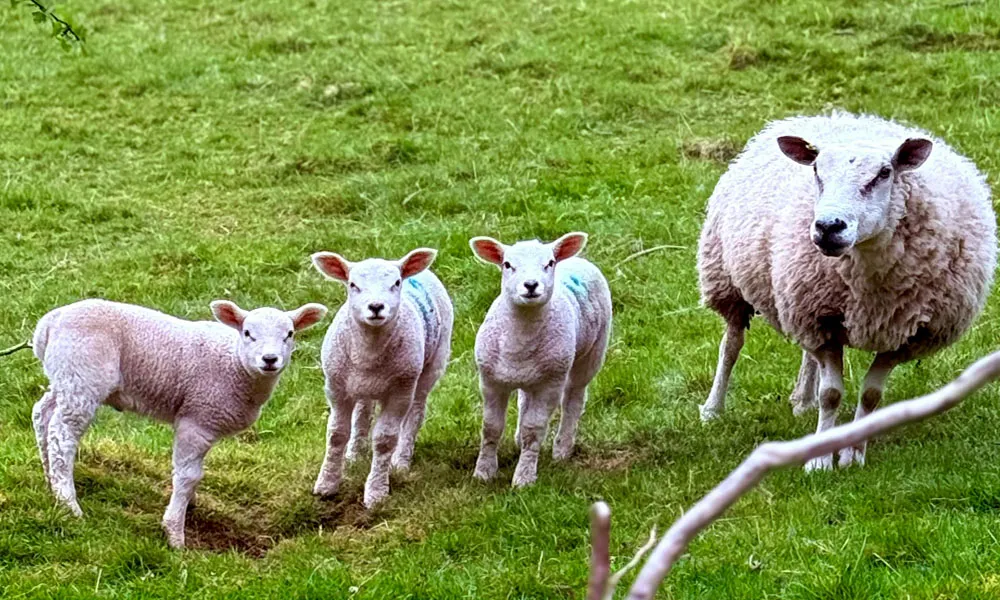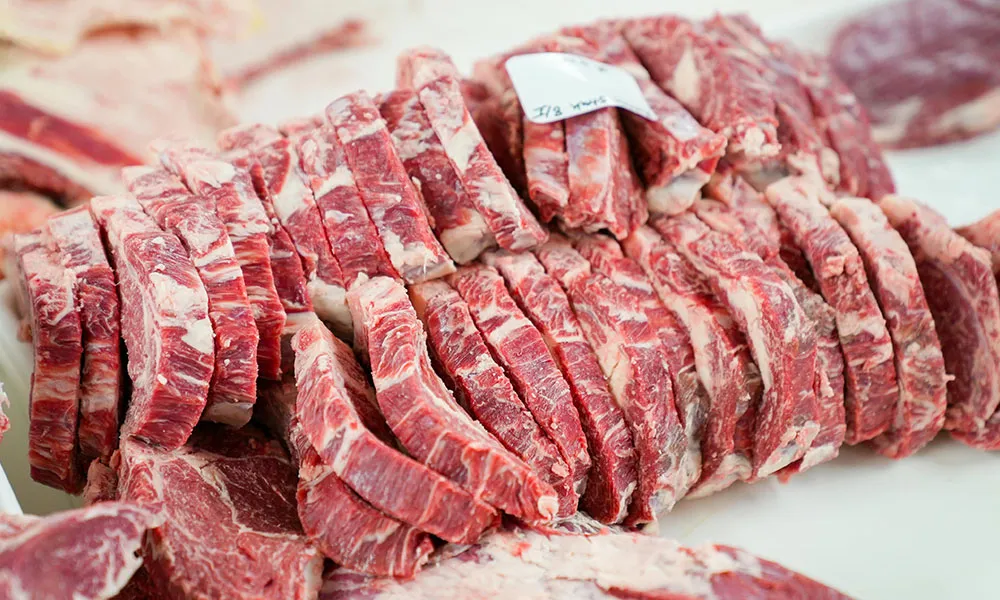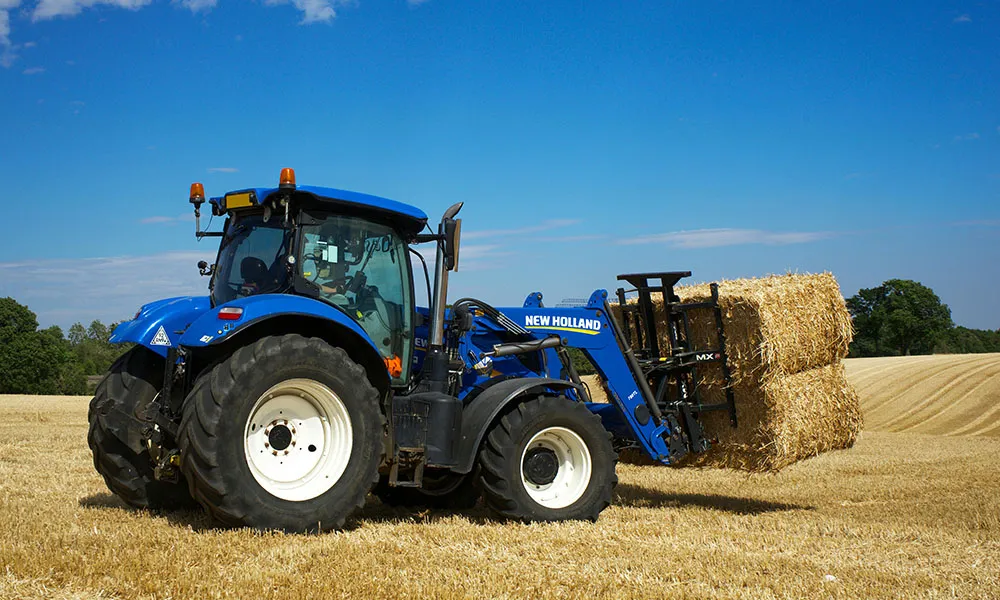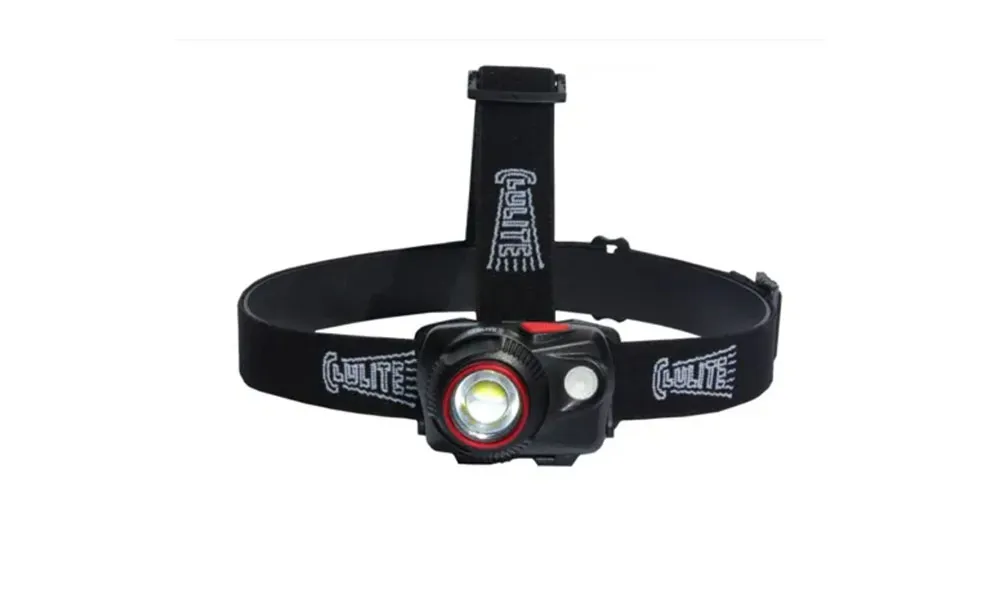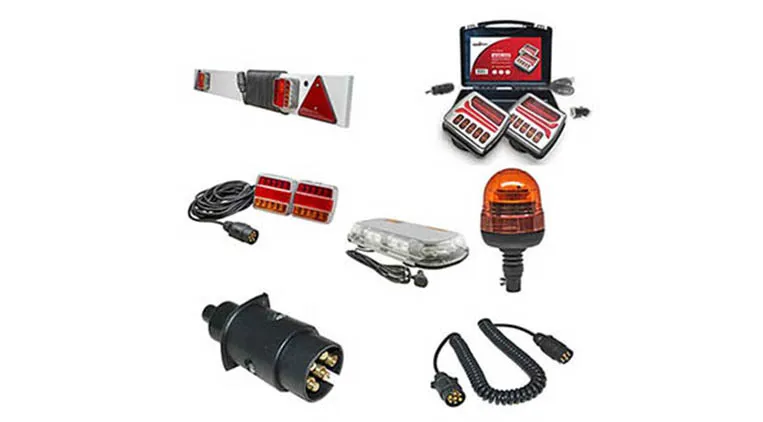
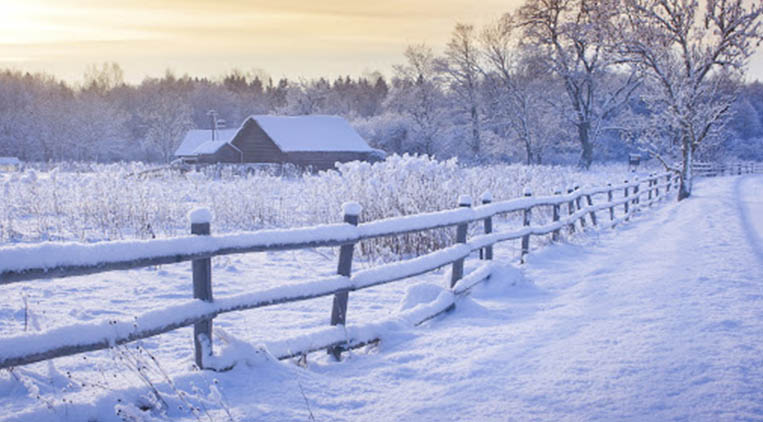
Agridirect.ie focusses once more on the theme of farm safety and outlines 5 key safety measures that farmers should take this winter.
On the farm, every season brings a different set of challenges. Calving season in spring means sleepless nights, while long summer days on the tractor is murder on the back. No matter what the farming calendar throws our way, though, it is always important to think of our own safety and that of others. Farming, by its very nature, is one of the most dangerous occupations in the world. And while most farmers are aware of the hazards of the job and try to take all necessary precautions, it can be easy to forget safety measures as we rush from one task to another.
Winter brings harsher weather conditions and shorter daylight hours, making it a particularly dangerous time on the farmyard. That’s why we at Agridirect.ie have put together a list of key measures that all farmers should follow during the coming weeks. We hope you find them useful.
Clean farmyard, secure buildings
Keep your workspaces as clean as possible. This may seem an obvious point, but let’s be honest: how many of us let the mess in our farmyards build up over the winter months? Whether it’s that pile of silage wrap that just keeps growing and gathering dirt, or the rusting tractor parts we can’t let go of, we farmers are notorious hoarders of useless items. Having to navigate around this sort of clutter increases the likelihood of tripping or slipping. So do yourself a favour – get rid of it!
Additionally, you should always inspect the security of buildings on your premises ahead of severe winter weather, and carry out repairs as necessary. Repair work brings its own set of potential hazards, of course, so don’t do it alone. Use appropriate equipment and take all necessary safety precautions.
Mind your back
Have you taken a course in manual handling? Do you have a grasp of best practice when lifting heavy objects?
If not, you may be putting yourself at risk of a debilitating back injury. As we get older, the likelihood of slipping a disk or pulling a muscle from heavy lifting increases. Unfortunately for us, farming is a profession that demands a lot of lifting. The key here is to know your limitations. Where possible, use machinery to bear the heaviest loads.
If lifting is unavoidable, always bend your knees and keep your back and neck straight. The diagram provided below should be a help in this respect (right with green arrows is correct).
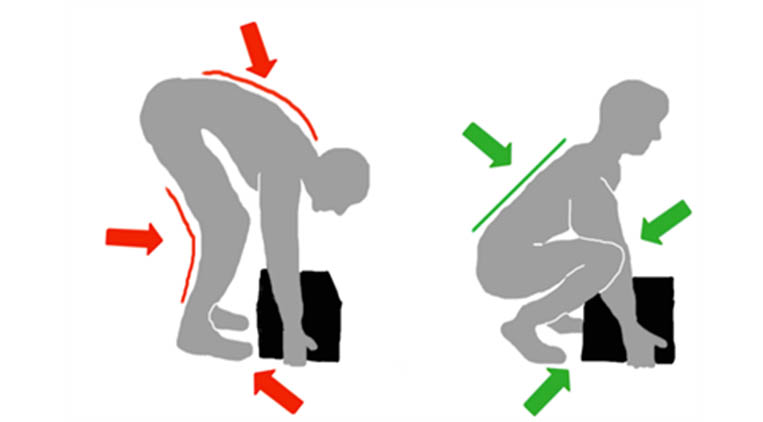
Lighting, lighting, lighting
Again, this may seem so obvious that it doesn’t need to be mentioned. And yet, time and again, I encounter farmers carrying buckets along roadsides at dusk, or late at night, wearing dark clothes. This is indescribably stupid and extremely dangerous. If you are working outdoors in areas where machinery is moving, please remember to wear a reflective jacket and a light. A beanie hat with a torch is an excellent piece of equipment and doesn’t cost the earth. It could save your life.
Furthermore, remember that all your machinery should have adequate lighting. As we outlined in a previous article on this site, tractor lighting is particularly important when working in the dark.

Electrical safety
Electrical accidents are surprisingly common on farms. Electrical fittings that are not regularly checked and maintained can become damaged over time. During the winter months, we rely on our electrical fittings a lot more, so now is the right time to have them repaired or appropriately replaced with fittings that have the correct IP ratings. It is always best to have an electrician involved in this process. Ask him to check that your RCD (Residual Current Device) is working correctly.
In addition, remember that you shouldn’t handle electrical equipment if you have wet hands!
Rodent control
As the weather gets colder, rodents will start to move indoors. They are looking for warmth and food, both of which are hard to come by outside. We had a long, warmish summer this year, which provided ideal breeding conditions for mice and rats. That means there are a lot of rodents around this winter and your sheds and grain supplies look very attractive to them.
You need to have a plan in place for managing a rodent infestation. In the first instance, it is always good to keep a cat or two around the farm. A good cat will hunt and kill rodents, but the predator’s presence will also act as a deterrent.
Aside from this, you should make sure that all sheds and outhouses are sealed and properly closed. If you are dealing with an infestation, you should consider using humane approaches such as ultrasound repellents and bait boxes. Poison should only be used as a last resort, and should always be put down by a trained professional.




